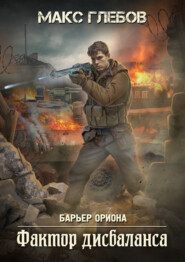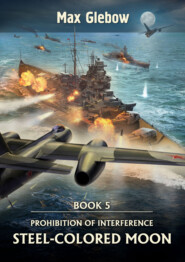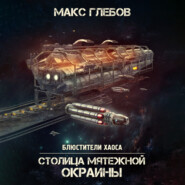По всем вопросам обращайтесь на: info@litportal.ru
(©) 2003-2024.
✖
Assault Line
Настройки чтения
Размер шрифта
Высота строк
Поля
“Commander Yoon Gao and I have set out all the facts in the information packet to the fullest extent possible, Mr President,” I said while rising, “The rest are my personal thoughts and conclusions, which will be more appropriately conveyed in the course of the general debate.”
“Well, then, let’s start with you, in accordance with the ancient tradition, as a junior officer here,” grinned Tobolsky, “Give your thoughts, Mr Lavroff.”
I went to the podium next to the presidium table, where were sitting in comfortable seats President Tobolsky, Defence Minister Bronstein, Chief of the General Staff General of the Army Mazilescu, and Minister of Military Production Zwerev, whose position I so brazenly claimed in private with the President. In the hall opposite me sat the senior military commanders of the Federation and the heads of ministries and departments involved in the war and military production.
It was the opportunity to speak to such an audience that I saw as one of my intermediate goals, and not only to speak, but also to make sure that my opinions are listened to. Well, in the long list of steps to complete the task I can tick the next box. Let’s get started.
“Gentlemen, I will try to put my thoughts as concisely as possible,” I threw in the opening phrase,“What I saw in the quarg back areas says two things. First, we underestimated the enemy’s military-industrial potential. In three to six months, the enemy is confronting our Fleet with no less than ten, but rather more, Titan-class ships, which, when used together, will be able to neutralize the defense of any of our star systems, including the Solar System.”
The audience was moving and a quiet hum went over it, but I just kept going: “That will happen if we do not fundamentally change anything in our military industry and economy, although it is not certain that even if we want to make the necessary changes, we can do it in time.
Second, it can be considered proven that the quargs have another enemy with whom they are waging war. At first glance, this is good news for us, but I have the strong feeling that our potential ally is losing this war, and the tide of war has been reversed recently. How else do you explain that the quargs have been able to afford a sharp increase in fighting in our direction? So, for the foreseeable future, the Earth Federation may face the sad fact, that the enemy will have at its disposal a very large number of troops and fleet units, which will be transferred to our theatre of operations. The combination of these two factors will leave our Army and Fleet with a task that they, with all their heroism and high-quality training, will not be able to accomplish simply because of the overwhelming superiority of the enemy in numbers and power of armaments.”
“Don’t you think you’re darkening the picture, Mr Lavroff?” The Minister of Defense asked me a question, “Because many of your conclusions are predicated solely on your own assumptions, not based on reliable facts.”
“All I’m saying is a negative scenario, Mr Minister,” I answered carefully, knowing Bronstein’s temper, “There, beyond these walls, more than 200 billion lives depend on our decisions, and we must be prepared for any scenario, even one that is pessimistic.”
“Do you have any specific suggestions, Mr Lavroff?” The Minister of Military Production Zwerev asked the question in a small but firm voice, “What my ministry could do, for example, if things go your way?”
“To temporarily nationalize the defence industry companies, Mr Minister,” I did not hesitate to reply, “Only by placing military production under the strict control of the State can the output of military production be rapidly increased to the quantities we need at a reasonable cost, but, again, this measure alone will not suffice.”
There was an outrage in the audience. No one expected me to say that. Tobolsky raised his hand and the noise stopped.
“Gentlemen,” the President said firmly, “we are gathered here to make important public decisions. Please remember that and keep your emotions in check. Nor did I expect Mr Lavroff to make such an offer, but I would like to hear his arguments to the end. Continue, Captain,” the President called me by my low rank, either he made it clear to me that I had to think over what I was saying, or he simply did not wish to use civil form of address in the circumstances.
So, I continued: “The Earth Federation has become too loose and amorphous, gentlemen,” I thought I’d drop off some long-standing thoughts in my head, because I didn’t know if I ever get a similar chance, “There have been similar precedents in our history. You all remember World War II. Germany, a great power that had managed to subjugate almost all of Europe at the beginning of the war, was too late in converting its industry into military uses, and it did so only by the end of 1942. Three years of war, the Germans on the home front continued to live as if there was no war. So what? Their army entered the war as the most powerful and capable fighting force in the world, but by the end of the third year of the confrontation, it had lost its advantage and suffered decisive defeats in Russia and northern Africa.
We’ve been on this destructive path for 15 years. Remember the first, the most difficult years of the war, as it once seemed. That’s when the economy was mobilized. Nobody thought about profit, profitability, rights and freedoms. Everyone knew it was us or them. And we had survived. But once we got the quargs off our territory, and not even from the whole territory, because we still haven’t recovered some of it, the mood started to change. Now we have an economy that produces non-military goods in quantities that are clearly excess to a belligerent State, luxury goods, miscellaneous services and a host of other junk that devours productive and human resources that could and should be channelled into the military industry. And the enemy has behaved differently all these years. We thought we’d made a breakthrough in the war on our own, and it turned out that a large part of the enemy’s troops and resources had been diverted by another, unknown theatre of operations. Instead of mobilizing all forces and decisively defeating the enemy, we gave our adversary the opportunity to focus on destroying our potential allies, leaving only deterrent forces on our front. And now we have a logical result. The Ally is on the verge of defeat, and we’re going to be left alone with the enemy whose strength we never imagined until the last moment, and I’m not sure we have a complete picture of the strength of our adversary at this time.”
They listened to me. The facial expressions were different, from annoyed to brooding, but I didn’t see any indifference.
“May I ask Mr Lavroff a question?” The Minister of Labour was up from his seat.
Tobolsky silently nodded.
“Am I to understand correctly that you are proposing to transfer a significant proportion of civilian production to the defence industry?”
“Quite right, Mr Minister.”
“And what do you imagine, Mr Lavroff? In this sector of the economy, 80% of companies are represented by small and lower-middle-sized businesses. Are you going to nationalize all these businesses, too?”
“In no case. There is not enough state management resources, and the efficiency of their work is going to go down a lot. They will receive orders from the enterprises of the military-industrial complex centrally. Again, there are precedents in the history of the same Germany or Japan.”
“Gentlemen, these are the details. We can discuss them later,” The Minister of Defense has interrupted our discussion, “Mr Lavroff, you said that nationalization alone would not be enough. You want to surprise us with another social bomb?”
“No, Mr Minister, I don’t want to,” I answered without reacting to Bronstein’s sarcasm, “It would be purely military measures. There are three operations to be carried out: the destruction or disabling of the docks with the enemy’s superbattleships under construction, a reconnaissance raid on potential allied territory, and a sudden, demonstrative attack on one, and better yet, two star systems in quarg territory. This is the only way we can significantly delay, if not prevent, the deadly enemy strike.”
“It’s utopia and empty fantasizing, Captain,” the Chief of the General Staff was heard from the Presidium table. General of the Army Mazilescu was outraged by my insolence and impertinence, which clearly was on his face. “The Commander-in-Chief has appointed you, Captain, to the general officer post of the Chairman of the New Equipment and Weapons Commission, and I’m sure he knew what he was doing making that decision. It is in this role that you are at this Senior Command Meeting, although your rank doesn’t match it’s level. Nevertheless, you take the liberty of proposing strategic initiatives upon which the Federation’s fate depends, although, as I recall, you haven’t even graduated from the General Staff Academy yet.”
“General of the Army, Sir,” responded I with the utmost neutrality. It was not my intention to destroy relations with Mazilescu, “The Commander-in-Chief gave me the floor at this meeting to make my observations, and I am making them. The assessment of what I say will naturally be made by superior officers, of whom this is immediate responsibility, and who will also take the final decisions.”
“Ehh… Mr Mazilescu,” suddenly I heard a familiar voice from the audience. This was Indonesian professor Suparman Alatas in the general’s uniform, which, as usual, did not fit. In his usual manner, he ignored the statutory appeals to his superiors, and anyway he didn’t care at all about all the rules and regulations. “I’m sorry to interrupt, but it was Mr Lavroff who got us the information we’re all here to discuss. It seems to me that this fact alone obliges us at least to listen carefully to him.”
The discussion, which periodically turned into a heated debate, lasted more than five hours. A variety of proposals have been made, discussed and discarded, but the outcome was not at all what I wanted.
I was listened to, but not heard. The idea of a diversionary strike on the inner planets of the quargs, intended to cast doubt on the safety of the rear, and to force the enemy to postpone the offensive until the problem is resolved, was rejected. It has been hailed as unrealistic proposition, given the Federation’s lack of forces even to effectively defend its own systems, let alone a major offensive.
The admirals also had an open skepticism about the surprise attack on the enemy’s shipyards. Such structures are located in well-protected star systems, where forces sufficient to strike effectively cannot enter without being detected. Consequently, we will have to fight our way there, which means casualties, probably very large.
The meeting was more or less comfortable only with the idea of a reconnaissance raid to find star systems of a potential ally, but I have also been pointed out that there are no ships in the Fleet with the necessary characteristics of invisibility and range.
As a result, I was forced to prepare urgently the necessary ships for a reconnaissance raid, and I’ve been politely but firmly asked not to engage in strategic military planning having my captain’s shoulder straps.
The High Assembly decided to confine itself to traditional measures such as „increase the production”, „review the financing”, „force the construction”, „fully cooperate” and „Conduct additional recruitment to…”. Complacency, in short. I would call this behavior criminal negligence, but who would listen to me?
Anyway, coming out of the meeting, I almost physically felt the closeness of a sad ending and I felt powerless to change the situation. These people with the big stars on their shoulder straps didn’t want to realize that the situation had changed. In the last 15 years, they’ve grown accustomed to balance on the fronts, and now perceived the new threat as something ordinary, something that has been dealt with many times and successfully.
But this time, I don’t think you gentlemen will get away with it.
* * *
I dismissed Yoon Gao, who was never been called to the meeting, and went back to my office. I missed the Academy classes again today.
After my appointment as Chairman of the Commission of the Ministry of Defense, the Chief of the Academy O’Sullivan had to allow me to attend classes freely and a partial correspondence course. He didn’t like the decision at all, but the General knew there was no other option. And I needed the Academy like air. Without it, there could be no further military career. So I was quite grateful to the old Irishman. That’s the second time he’s helped me out, and I’m trying not to forget that.
My depression didn’t last long. I called Inga, and we went for a walk in Central Park. Inga, in her elegant uniform, that fitted her perfectly, with the senior lieutenant’s shoulder straps, the Iron Cross on the chest and and the qualification tab with green long bands of combat experience looked irresistible in every sense. Early graduation from the Planetary Commando Academy and my personal relationship with the director of the Academy let me lay my impudent hands on her career. Inga received an extraordinary rank and the Iron Cross for boarding the enemy flagship in the Barnard’s system. Any commander would gladly accept an officer with such combat experience, but my request didn’t give them a chance, and Inga was placed at my disposal as commander of the Land Weapons Test Company together with Lieutenant Fulton and Lieutenant Jaswinder and a dozen other former General Schiller’s cadets.
A while back, I tried, but I couldn’t talk Inga out of a military career. Now, at least I managed to keep her under my supervision. I don’t want Inga landing on enemy planets in the first wave of commandos. I don’t want it, that’s all. By the way, it was the acute reluctance to send her on the attack that led me to the very, very correct idea, but I’ll talk about none of it now.
“Listen, Igor,” said Inga after listening to my emotional account of the meeting at the Ministry of Defence, “What did you expect them to do? That they would look into the mouth of some heroic captain who was barely eighteen? As I was able to see, you know people pretty well, you wouldn’t expect positive results of your attempt.”
“Of course you’re right,” I smiled joylessly, “but what do we do now? In six months, we’ll start losing one system after another, and this agony won’t last…”
“Well, I don’t think I can help you with that, although, if you have to go on any more adventures, you can always count on me. But seriously, remember what position you’re in right now. You have a lot of resources in your hands. Tell me, Mr Chairman of the Commission of the Ministry of Defense, can you, for example, organize combat tests of a new weapon by targeting the enemy’s rear shipyard?”
I was thinking.
“I guess I can. But it’s gonna be a local operation that won’t solve anything. Quargs have placed their docks in different star systems, and they must be hit simultaneously.”
“Well, that’s why you’re sitting in the general’s office, so you can think for yourself. Think about it, but not now. Right now, you and I are walking in the park and enjoying some rare moments of relaxation, in case you forgot.”
I hugged Inga and we walked slowly to the cosy pavilion by the pond, where there was a flock of fattened, colorful fish. There were kids on the beach who would throw food to the fish and have fun when the fish would bump into each other, trying to get to the good bits first.
“Lately, I’ve been having a hard time getting my mind off things and resting,” I said to Inga in low voice, “I keep thinking people around me are already dead. I look around, and instead of all that beauty and carelessness, I see very different pictures. Just look at them. They’re laughing and smiling like war is just a scary fairy tale, as if you could just close your eyes and it would disappear with all the problems. Why are they acting like this, Inga?”
“Not everyone knows what you know, Igor,” Inga’s mood has clearly deteriorated, “And if they knew, I’m not sure anything would have changed. Most ordinary people don’t believe that the world they’re accustomed to can suddenly collapse, and they keep acting like nothing’s happening.”
“Sorry to spoil your stroll.”
“Well, then, let’s start with you, in accordance with the ancient tradition, as a junior officer here,” grinned Tobolsky, “Give your thoughts, Mr Lavroff.”
I went to the podium next to the presidium table, where were sitting in comfortable seats President Tobolsky, Defence Minister Bronstein, Chief of the General Staff General of the Army Mazilescu, and Minister of Military Production Zwerev, whose position I so brazenly claimed in private with the President. In the hall opposite me sat the senior military commanders of the Federation and the heads of ministries and departments involved in the war and military production.
It was the opportunity to speak to such an audience that I saw as one of my intermediate goals, and not only to speak, but also to make sure that my opinions are listened to. Well, in the long list of steps to complete the task I can tick the next box. Let’s get started.
“Gentlemen, I will try to put my thoughts as concisely as possible,” I threw in the opening phrase,“What I saw in the quarg back areas says two things. First, we underestimated the enemy’s military-industrial potential. In three to six months, the enemy is confronting our Fleet with no less than ten, but rather more, Titan-class ships, which, when used together, will be able to neutralize the defense of any of our star systems, including the Solar System.”
The audience was moving and a quiet hum went over it, but I just kept going: “That will happen if we do not fundamentally change anything in our military industry and economy, although it is not certain that even if we want to make the necessary changes, we can do it in time.
Second, it can be considered proven that the quargs have another enemy with whom they are waging war. At first glance, this is good news for us, but I have the strong feeling that our potential ally is losing this war, and the tide of war has been reversed recently. How else do you explain that the quargs have been able to afford a sharp increase in fighting in our direction? So, for the foreseeable future, the Earth Federation may face the sad fact, that the enemy will have at its disposal a very large number of troops and fleet units, which will be transferred to our theatre of operations. The combination of these two factors will leave our Army and Fleet with a task that they, with all their heroism and high-quality training, will not be able to accomplish simply because of the overwhelming superiority of the enemy in numbers and power of armaments.”
“Don’t you think you’re darkening the picture, Mr Lavroff?” The Minister of Defense asked me a question, “Because many of your conclusions are predicated solely on your own assumptions, not based on reliable facts.”
“All I’m saying is a negative scenario, Mr Minister,” I answered carefully, knowing Bronstein’s temper, “There, beyond these walls, more than 200 billion lives depend on our decisions, and we must be prepared for any scenario, even one that is pessimistic.”
“Do you have any specific suggestions, Mr Lavroff?” The Minister of Military Production Zwerev asked the question in a small but firm voice, “What my ministry could do, for example, if things go your way?”
“To temporarily nationalize the defence industry companies, Mr Minister,” I did not hesitate to reply, “Only by placing military production under the strict control of the State can the output of military production be rapidly increased to the quantities we need at a reasonable cost, but, again, this measure alone will not suffice.”
There was an outrage in the audience. No one expected me to say that. Tobolsky raised his hand and the noise stopped.
“Gentlemen,” the President said firmly, “we are gathered here to make important public decisions. Please remember that and keep your emotions in check. Nor did I expect Mr Lavroff to make such an offer, but I would like to hear his arguments to the end. Continue, Captain,” the President called me by my low rank, either he made it clear to me that I had to think over what I was saying, or he simply did not wish to use civil form of address in the circumstances.
So, I continued: “The Earth Federation has become too loose and amorphous, gentlemen,” I thought I’d drop off some long-standing thoughts in my head, because I didn’t know if I ever get a similar chance, “There have been similar precedents in our history. You all remember World War II. Germany, a great power that had managed to subjugate almost all of Europe at the beginning of the war, was too late in converting its industry into military uses, and it did so only by the end of 1942. Three years of war, the Germans on the home front continued to live as if there was no war. So what? Their army entered the war as the most powerful and capable fighting force in the world, but by the end of the third year of the confrontation, it had lost its advantage and suffered decisive defeats in Russia and northern Africa.
We’ve been on this destructive path for 15 years. Remember the first, the most difficult years of the war, as it once seemed. That’s when the economy was mobilized. Nobody thought about profit, profitability, rights and freedoms. Everyone knew it was us or them. And we had survived. But once we got the quargs off our territory, and not even from the whole territory, because we still haven’t recovered some of it, the mood started to change. Now we have an economy that produces non-military goods in quantities that are clearly excess to a belligerent State, luxury goods, miscellaneous services and a host of other junk that devours productive and human resources that could and should be channelled into the military industry. And the enemy has behaved differently all these years. We thought we’d made a breakthrough in the war on our own, and it turned out that a large part of the enemy’s troops and resources had been diverted by another, unknown theatre of operations. Instead of mobilizing all forces and decisively defeating the enemy, we gave our adversary the opportunity to focus on destroying our potential allies, leaving only deterrent forces on our front. And now we have a logical result. The Ally is on the verge of defeat, and we’re going to be left alone with the enemy whose strength we never imagined until the last moment, and I’m not sure we have a complete picture of the strength of our adversary at this time.”
They listened to me. The facial expressions were different, from annoyed to brooding, but I didn’t see any indifference.
“May I ask Mr Lavroff a question?” The Minister of Labour was up from his seat.
Tobolsky silently nodded.
“Am I to understand correctly that you are proposing to transfer a significant proportion of civilian production to the defence industry?”
“Quite right, Mr Minister.”
“And what do you imagine, Mr Lavroff? In this sector of the economy, 80% of companies are represented by small and lower-middle-sized businesses. Are you going to nationalize all these businesses, too?”
“In no case. There is not enough state management resources, and the efficiency of their work is going to go down a lot. They will receive orders from the enterprises of the military-industrial complex centrally. Again, there are precedents in the history of the same Germany or Japan.”
“Gentlemen, these are the details. We can discuss them later,” The Minister of Defense has interrupted our discussion, “Mr Lavroff, you said that nationalization alone would not be enough. You want to surprise us with another social bomb?”
“No, Mr Minister, I don’t want to,” I answered without reacting to Bronstein’s sarcasm, “It would be purely military measures. There are three operations to be carried out: the destruction or disabling of the docks with the enemy’s superbattleships under construction, a reconnaissance raid on potential allied territory, and a sudden, demonstrative attack on one, and better yet, two star systems in quarg territory. This is the only way we can significantly delay, if not prevent, the deadly enemy strike.”
“It’s utopia and empty fantasizing, Captain,” the Chief of the General Staff was heard from the Presidium table. General of the Army Mazilescu was outraged by my insolence and impertinence, which clearly was on his face. “The Commander-in-Chief has appointed you, Captain, to the general officer post of the Chairman of the New Equipment and Weapons Commission, and I’m sure he knew what he was doing making that decision. It is in this role that you are at this Senior Command Meeting, although your rank doesn’t match it’s level. Nevertheless, you take the liberty of proposing strategic initiatives upon which the Federation’s fate depends, although, as I recall, you haven’t even graduated from the General Staff Academy yet.”
“General of the Army, Sir,” responded I with the utmost neutrality. It was not my intention to destroy relations with Mazilescu, “The Commander-in-Chief gave me the floor at this meeting to make my observations, and I am making them. The assessment of what I say will naturally be made by superior officers, of whom this is immediate responsibility, and who will also take the final decisions.”
“Ehh… Mr Mazilescu,” suddenly I heard a familiar voice from the audience. This was Indonesian professor Suparman Alatas in the general’s uniform, which, as usual, did not fit. In his usual manner, he ignored the statutory appeals to his superiors, and anyway he didn’t care at all about all the rules and regulations. “I’m sorry to interrupt, but it was Mr Lavroff who got us the information we’re all here to discuss. It seems to me that this fact alone obliges us at least to listen carefully to him.”
The discussion, which periodically turned into a heated debate, lasted more than five hours. A variety of proposals have been made, discussed and discarded, but the outcome was not at all what I wanted.
I was listened to, but not heard. The idea of a diversionary strike on the inner planets of the quargs, intended to cast doubt on the safety of the rear, and to force the enemy to postpone the offensive until the problem is resolved, was rejected. It has been hailed as unrealistic proposition, given the Federation’s lack of forces even to effectively defend its own systems, let alone a major offensive.
The admirals also had an open skepticism about the surprise attack on the enemy’s shipyards. Such structures are located in well-protected star systems, where forces sufficient to strike effectively cannot enter without being detected. Consequently, we will have to fight our way there, which means casualties, probably very large.
The meeting was more or less comfortable only with the idea of a reconnaissance raid to find star systems of a potential ally, but I have also been pointed out that there are no ships in the Fleet with the necessary characteristics of invisibility and range.
As a result, I was forced to prepare urgently the necessary ships for a reconnaissance raid, and I’ve been politely but firmly asked not to engage in strategic military planning having my captain’s shoulder straps.
The High Assembly decided to confine itself to traditional measures such as „increase the production”, „review the financing”, „force the construction”, „fully cooperate” and „Conduct additional recruitment to…”. Complacency, in short. I would call this behavior criminal negligence, but who would listen to me?
Anyway, coming out of the meeting, I almost physically felt the closeness of a sad ending and I felt powerless to change the situation. These people with the big stars on their shoulder straps didn’t want to realize that the situation had changed. In the last 15 years, they’ve grown accustomed to balance on the fronts, and now perceived the new threat as something ordinary, something that has been dealt with many times and successfully.
But this time, I don’t think you gentlemen will get away with it.
* * *
I dismissed Yoon Gao, who was never been called to the meeting, and went back to my office. I missed the Academy classes again today.
After my appointment as Chairman of the Commission of the Ministry of Defense, the Chief of the Academy O’Sullivan had to allow me to attend classes freely and a partial correspondence course. He didn’t like the decision at all, but the General knew there was no other option. And I needed the Academy like air. Without it, there could be no further military career. So I was quite grateful to the old Irishman. That’s the second time he’s helped me out, and I’m trying not to forget that.
My depression didn’t last long. I called Inga, and we went for a walk in Central Park. Inga, in her elegant uniform, that fitted her perfectly, with the senior lieutenant’s shoulder straps, the Iron Cross on the chest and and the qualification tab with green long bands of combat experience looked irresistible in every sense. Early graduation from the Planetary Commando Academy and my personal relationship with the director of the Academy let me lay my impudent hands on her career. Inga received an extraordinary rank and the Iron Cross for boarding the enemy flagship in the Barnard’s system. Any commander would gladly accept an officer with such combat experience, but my request didn’t give them a chance, and Inga was placed at my disposal as commander of the Land Weapons Test Company together with Lieutenant Fulton and Lieutenant Jaswinder and a dozen other former General Schiller’s cadets.
A while back, I tried, but I couldn’t talk Inga out of a military career. Now, at least I managed to keep her under my supervision. I don’t want Inga landing on enemy planets in the first wave of commandos. I don’t want it, that’s all. By the way, it was the acute reluctance to send her on the attack that led me to the very, very correct idea, but I’ll talk about none of it now.
“Listen, Igor,” said Inga after listening to my emotional account of the meeting at the Ministry of Defence, “What did you expect them to do? That they would look into the mouth of some heroic captain who was barely eighteen? As I was able to see, you know people pretty well, you wouldn’t expect positive results of your attempt.”
“Of course you’re right,” I smiled joylessly, “but what do we do now? In six months, we’ll start losing one system after another, and this agony won’t last…”
“Well, I don’t think I can help you with that, although, if you have to go on any more adventures, you can always count on me. But seriously, remember what position you’re in right now. You have a lot of resources in your hands. Tell me, Mr Chairman of the Commission of the Ministry of Defense, can you, for example, organize combat tests of a new weapon by targeting the enemy’s rear shipyard?”
I was thinking.
“I guess I can. But it’s gonna be a local operation that won’t solve anything. Quargs have placed their docks in different star systems, and they must be hit simultaneously.”
“Well, that’s why you’re sitting in the general’s office, so you can think for yourself. Think about it, but not now. Right now, you and I are walking in the park and enjoying some rare moments of relaxation, in case you forgot.”
I hugged Inga and we walked slowly to the cosy pavilion by the pond, where there was a flock of fattened, colorful fish. There were kids on the beach who would throw food to the fish and have fun when the fish would bump into each other, trying to get to the good bits first.
“Lately, I’ve been having a hard time getting my mind off things and resting,” I said to Inga in low voice, “I keep thinking people around me are already dead. I look around, and instead of all that beauty and carelessness, I see very different pictures. Just look at them. They’re laughing and smiling like war is just a scary fairy tale, as if you could just close your eyes and it would disappear with all the problems. Why are they acting like this, Inga?”
“Not everyone knows what you know, Igor,” Inga’s mood has clearly deteriorated, “And if they knew, I’m not sure anything would have changed. Most ordinary people don’t believe that the world they’re accustomed to can suddenly collapse, and they keep acting like nothing’s happening.”
“Sorry to spoil your stroll.”

















